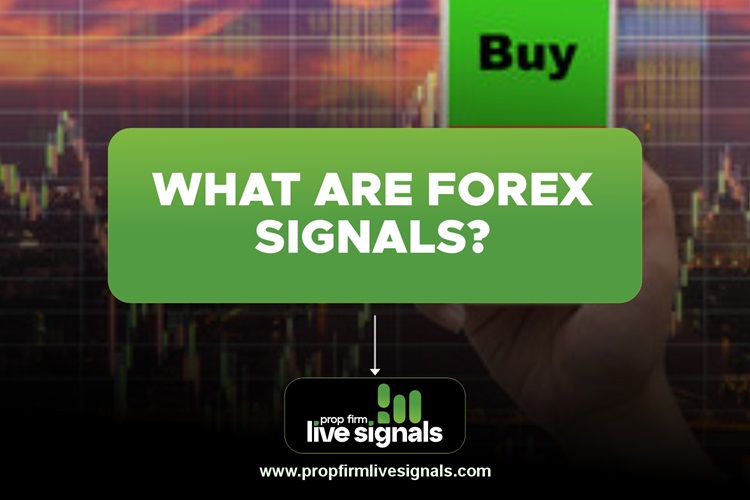What are Forex Signals?
Forex signals are real-time indicators or notifications that provide traders insights into potential trading opportunities within the currency market. These signals are generated by either human analysts or automated algorithms, leveraging various technical and fundamental analysis techniques to identify favorable entry and exit points for trades.
Types of Forex Signals
Forex signals can be categorized into two main types: manual signals and automated signals. Manual signals are generated by human analysts who conduct in-depth research and analysis before issuing recommendations. On the other hand, automated signals are generated by algorithms that automatically scan the market for predefined criteria and trigger alerts accordingly.
Delivery of Forex Signals
- Forex signals are typically delivered through various channels, including email, SMS, mobile apps, and dedicated trading platforms. Traders can choose the delivery method that best suits their preferences and trading style, ensuring timely access to critical market information.How Do Forex Signals Work?
Technical Analysis: technical analysis is a methodology that examines historical price data and market statistics to forecast future price movements. Analysts or algorithms utilize technical indicators, including moving averages, relative strength index (RSI), and Fibonacci retracement levels, to identify patterns and trends within currency pairs. These indicators help signal potential entry and exit points for trades, allowing traders to capitalize on price fluctuations.
- For instance, a signal generated through technical analysis might indicate a bullish trend based on the convergence of multiple moving averages and an oversold condition on the RSI. Traders may interpret this signal as a buying opportunity, anticipating a price rally.
- Fundamental Analysis: forex signals may incorporate fundamental analysis, which focuses on evaluating macroeconomic factors and geopolitical events that influence currency values. Fundamental analysts scrutinize economic data releases, central bank policies, geopolitical tensions, and other external factors to gauge their impact on currency markets. a signal generated through fundamental analysis might highlight the potential impact of an interest rate decision by a central bank. If the central bank signals a stance by raising interest rates, it could bolster the currency’s value, prompting traders to go long on that currency pair.
- Risk Management: Effective risk management is the core of successful trading strategies, and forex signals are no exception. Traders must assess the risk-reward ratio of each trade signaled, considering factors such as entry and exit points, stop-loss levels, and position sizing. By implementing prudent risk management techniques, traders can mitigate potential losses and protect their capital while maximizing profitability. A forex signal may indicate a promising trading opportunity with a favorable risk-reward ratio of 1:2. In this scenario, traders would set their stop-loss level at a predetermined point to limit potential losses while aiming for a profit target twice the size of their initial risk.
Signals work by synthesizing technical and fundamental analysis to provide traders with actionable insights into potential trading opportunities. By incorporating these signals into their trading strategies and exercising disciplined risk management, traders can navigate the complexities of the currency markets with greater confidence and efficiency.
What to know about Forex signals
Forex signals are recommendations for trades given by qualified analysts or trading companies to help traders in the foreign exchange (forex) market make well-informed buy or sell choices. You could be unaware of the following important details regarding forex signals:
- Types of Signals: There are many different types of signals. These include fundamental analysis signals derived from the release of economic data, technical analysis signals based on chart patterns or indicator signals, and a combination of the two.
- Signal Providers: various businesses and people provide forex signal services, from free to premium subscription-based options. Before enrolling, it is imperative that you investigate the provider’s performance, strategy, and track record.
- Delivery of Signals: There are several ways in which signals can be distributed, such as by email, SMS, mobile applications, or exclusive trading sites. While some companies send out information on a daily or weekly basis, others deliver indications in real time.
- Risk management: To assist traders in controlling their risk exposure, reputable signal providers frequently give risk management instructions, such as stop-loss levels and position sizing recommendations.
- Automation: Using a trading platform or a connection to a trader’s brokerage account, certain forex signal providers (often referred to as trade copiers or forex signal copiers) provide the ability to automatically execute trades based on the signals.
Frequently Asked Questions
Are Forex Signals Reliable?
- Forex signals can vary in reliability depending on factors such as the accuracy of analysis, the expertise of analysts or algorithms, and market conditions. While some signals may prove to be highly accurate and profitable, others may be less reliable. Traders should exercise caution and conduct their due diligence before acting on any forex signal.
Can Forex Signals Guarantee Profits?
- While signals can provide valuable insights and guidance, they do not guarantee profits. Trading in the currency market inherently involves risk, and no signal or strategy can eliminate this risk. Successful trading requires a combination of skill, knowledge, and prudent risk management, regardless of the signals used.
How Can I Choose the Right Forex Signal Provider?
- Choosing the right forex signal provider is essential for maximizing the effectiveness of signals. When selecting a provider, traders should consider factors such as the provider’s track record, transparency, reputation, and customer support. Additionally, it’s crucial to assess the provider’s methodology for generating signals and ensure that it aligns with your trading objectives and risk tolerance.




